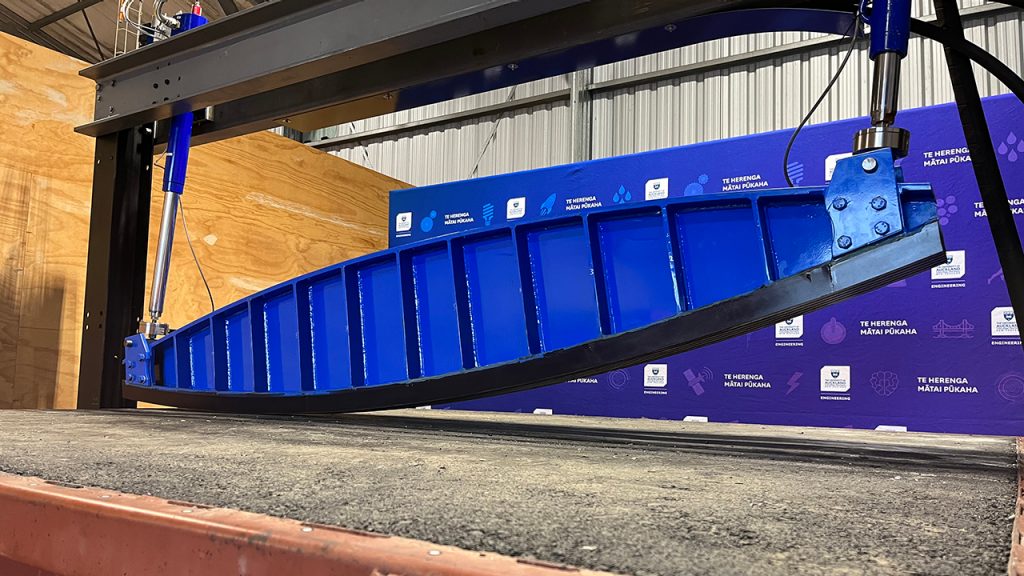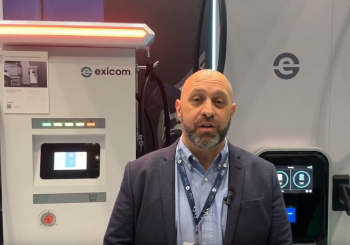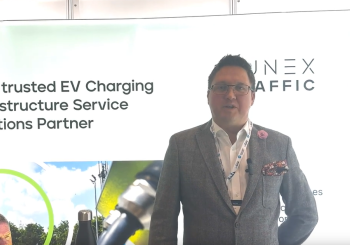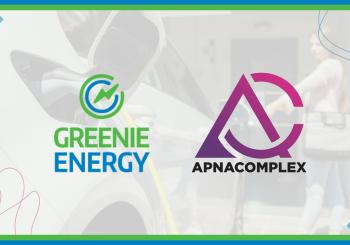The Accelerated Pavement Test (APT) “rocker” facility located at Downer’s Auckland asphalt plant has been developed over the past four years to test the effectiveness of wireless in-pavement charging for EVs.
The facility will help researchers from the faculty of engineering to investigate the potential for integrating wireless charging pads into roads and highways, so drivers won’t need to plug-in to charge their EVs.
“This facility will help us model and assess the complex mechanical, electrical and thermal interactions when a wireless power system is placed within different pavement designs,” says Professor Grant Covic, who leads the research team. “It will enable us to find the best fit and lowest cost solutions suitable for New Zealand roads.”
The launch is part of the Inductive Power Transfer (IPT) roadway project funded by MBIE, which aims to develop new ways to charge New Zealand’s fleet of EVs to meet emission reduction targets.
The University of Auckland is home to a world-leading team who have been researching wireless charging technology for over 20 years. As New Zealand moves to a low carbon future, the electrification of roads is becoming increasingly urgent but there are challenges to making this technology viable for widespread use.
“The partnership between the University of Auckland and Downer brings us one step closer to overcoming those challenges,” says Murray Robertson, CEO of Downer NZ.
The APT rocker facility will simulate the wheel of a truck running over a half-scale road pavement with integrated wireless pads and is designed to simulate pavement or pad fatigue over time. It will help researchers to fully test future roads, as well as their resilience to environmental conditions.
“The system was co-developed by utilising the mechanical, roading and electrical expertise across the University and Downer teams,” says Tom Allen. “It will enable faster testing of durable charging systems, which is a key factor in the system’s success.”
Providing durable in-pavement solutions is a challenging but very worthwhile goal, says associate professor Doug Wilson, director of the transportation research centre at the University of Auckland. “This project will have significant benefits for a potential future transport system, and integrating new technologies like this will be invaluable as New Zealand transitions to a low carbon future.”





Follow Us On Social Media